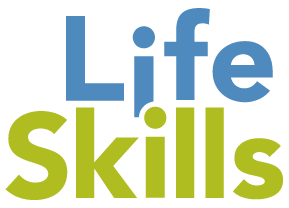Family with Teen(s)
6 Tips for a Better Prayer Life this summer

- Say hello! When a friend enters a room, the first thing most people do is say hello or throw up a wave or nod. In many ways, this is the beginning of prayer: an acknowledgement of God's presence. When we walk into a Church, we genuflect in front of the tabernacle to humble ourselves while we acknowledge and reverence the real presence of Jesus in the Eucharist inside. As you begin to pray, whether it's just walking somewhere during the day, in a chapel or in your room, take a moment to acknowledge whose presence you are in. 'Be still, and know that I am God' (Psalms 46:11).
- Be yourself. So many people think that holiness is unattainable, and that to pray we need to look like a statue of St. Francis with our hands folded piously. The reality is that we were created to be in communion with God, and He desires to be in a relationship with us. He doesn't want you to be a carbon copy of a past saint. He created you with your own gifts and passions, and wants to shine through you uniquely in them. Come to him as you are and let Him transform you into the saint He wants you to be!
- “Teach us to pray' (Luke 11:1). Jesus' apostles asked Him these words, and that conversation resulted in what we call the 'Our Father' prayer. If his own apostles asked Jesus to teach them how to pray, how much more should we ask him to teach us to pray! Ask God to help you and know that He listens. 'Ask and it will be given to you; seek and you will find; knock and the door will be opened to you' (Matthew 7:7).
- Hit the brakes! The world we live in today blasts us with media and noise from every direction all day, from texting to music to tv and internet. These aren't bad things, but too much can be distracting from our relationship and conversation with God. “Silence is so lacking in this world which is often too noisy, which is not favorable to recollection and listening to the voice of God” (Pope Benedict XVI). Take 10 minutes every day from the time you spend on Instagram or Netflix, and use that time to pray. Put God back at the center of your heart and mind.
- Keep it alive. A prayer life that isn't kept up is like a pond with no water flowing in or out. It becomes stagnant. There's no oxygen coming in, and it becomes uninhabitable. All you’ll find is scum and mosquitos. Nobody likes mosquitos; don't be that person. Yet a person who cultivates their relationship with God in prayer finds a much different picture. There is fresh water flowing in and out of the pond. It is life giving! There are flowers and trees that grow along the sides. Your prayer life will affect the other areas of your life.'Happy those who do not follow the counsel of the wicked, Nor go the way of sinners, nor sit in company with scoffers. Rather, the law of the LORD is their joy; God’s law they study day and night. They are like a tree planted near streams of water, that yields its fruit in season; Its leaves never wither; whatever they do prospers' (Psalms 1:1-3).
- Let it transform you. Practice makes perfect. The entire Christian life, including prayer, is something that we have to work on to become better at it. God can do amazing things in us through our reaching out to him in prayer!'Virtues are formed by prayer. Prayer preserves temperance. Prayer suppresses anger. Prayer prevents emotions of pride and envy. Prayer draws into the soul the Holy Spirit, and raises man to Heaven' (St. Ephraem of Syria). Published by Life Teen
The summer months are a perfect time for any teen to work on life skills. There are many elements of becoming and adult that are just not talked about at school or teen group, because we simply run out of time. The following content is supposed to inspire discussion with friends, parents, or other mentors in your life. Use the messages and discussion to dive further into these topics this summer. There are 5 topics, so feel free to spread them out in the months to come.
Adulting! What was once a noun is now a verb. The linguistics journal, American Journal, has offered up these definitions for the new verb “to adult.”
1. to behave in an adult manner; engage in activities associated with adulthood
2. to make someone behave like an adult; turn someone into an adult
Urban Dictionary offers a similar definition.
1. to do grown up things and hold responsibilities such as, a nine to five job, a mortgage/rent, a car payment, or anything else that makes one think of grown ups
Teens are in the process of becoming an adult, which is now known as “adulting.” When you cook as opposed to eating out or microwaving a meal, you are “adulting.” When you take care of necessary paperwork for college, for the bank, for the DMV, you are “adulting.” When you decide to stay in on a Friday night instead of going out with friends because tomorrow is a big day, you are “adulting.”
In the next few years, you will be out of the house and have to “adult” even more. You will have to rent an apartment, do your own taxes, and sew your clothes instead of throwing them out and buying new ones. Saint Paul speaks of “adulting” when he writes to the Church in Corinth.
1. to behave in an adult manner; engage in activities associated with adulthood
2. to make someone behave like an adult; turn someone into an adult
Urban Dictionary offers a similar definition.
1. to do grown up things and hold responsibilities such as, a nine to five job, a mortgage/rent, a car payment, or anything else that makes one think of grown ups
Teens are in the process of becoming an adult, which is now known as “adulting.” When you cook as opposed to eating out or microwaving a meal, you are “adulting.” When you take care of necessary paperwork for college, for the bank, for the DMV, you are “adulting.” When you decide to stay in on a Friday night instead of going out with friends because tomorrow is a big day, you are “adulting.”
In the next few years, you will be out of the house and have to “adult” even more. You will have to rent an apartment, do your own taxes, and sew your clothes instead of throwing them out and buying new ones. Saint Paul speaks of “adulting” when he writes to the Church in Corinth.

He encourages us to mature and give up childish ways. Later in Ephesians, he again, instructs us to not be like children “tossed to and fro and carried about with every wind.” Instead we are to “grow up in every way into him who is the head, into Christ.” 1 Corinthians 13: 10-13, Ephesians 4:13-15
Saint Paul teaches us that “adulting” requires steadfastness, thinking long-term, and ultimately becoming Christ-like. At Teen Group and other church events, we often talk about becoming Christ-like or holy. However, we tend to skip over foundational life skills that proceed growing in holiness. How are we to be generous with our money, if we don’t first know how to interview for and keep a job? How are we to have a holy marriage, if we don’t first know how to date well? How are we to provide for ourselves and eventually our families, if we don’t first know how to budget our money? Being a mature Christian entails being a mature human.
Discuss:
• How have you seen yourself “adult” over the past few years? Can you identify these moments and share them?
• Have you ever failed at “adulting”? Have you ever felt overwhelmed by adult responsibilities? What happened?
• Have you ever not known how to handle an adult situation? What did you do about it?
• Why does being a mature Christian entail being a mature human?
• How does the idea of “adulting” make you feel? Bored? Scared? Why?
Foundations of Adulting
One of the most foundational elements of “adulting” is being able to distinguish between wants and needs. When we confuse our wants and our needs, we choose short term gratification over long-term satisfaction. Being an adult means knowing the difference between wants and needs, and choosing what is better for the long term. For example, the adult would choose to stay in and get a good night’s rest before an all day service project because they know the service project will be much more enjoyable after a good amount of sleep.
Discuss:
• When have you recently chosen short-term gratification over long term satisfaction? What’s the story?
• Have you ever chosen long-term satisfaction over short-term gratification? What’s the story?
• What are some things you would like to do as an adult? Where would you like to go on vacation? What kind of car or house would you like to buy? What sort of adventures would you like to go on?
Advantages of Adulting
“Adulting” gives us the opportunity to do what we would like to do. It gives us the ability to think ahead and work for the future we want. “Adulting” is also an essential part of being a mature Christian. The rest of this post will give us tips and guidelines on how to “adult,” becoming a mature human and mature Christian. It dives into four foundational topics; Money, Dating, Work, and the Art of Conversation.
Saint Paul teaches us that “adulting” requires steadfastness, thinking long-term, and ultimately becoming Christ-like. At Teen Group and other church events, we often talk about becoming Christ-like or holy. However, we tend to skip over foundational life skills that proceed growing in holiness. How are we to be generous with our money, if we don’t first know how to interview for and keep a job? How are we to have a holy marriage, if we don’t first know how to date well? How are we to provide for ourselves and eventually our families, if we don’t first know how to budget our money? Being a mature Christian entails being a mature human.
Discuss:
• How have you seen yourself “adult” over the past few years? Can you identify these moments and share them?
• Have you ever failed at “adulting”? Have you ever felt overwhelmed by adult responsibilities? What happened?
• Have you ever not known how to handle an adult situation? What did you do about it?
• Why does being a mature Christian entail being a mature human?
• How does the idea of “adulting” make you feel? Bored? Scared? Why?
Foundations of Adulting
One of the most foundational elements of “adulting” is being able to distinguish between wants and needs. When we confuse our wants and our needs, we choose short term gratification over long-term satisfaction. Being an adult means knowing the difference between wants and needs, and choosing what is better for the long term. For example, the adult would choose to stay in and get a good night’s rest before an all day service project because they know the service project will be much more enjoyable after a good amount of sleep.
Discuss:
• When have you recently chosen short-term gratification over long term satisfaction? What’s the story?
• Have you ever chosen long-term satisfaction over short-term gratification? What’s the story?
• What are some things you would like to do as an adult? Where would you like to go on vacation? What kind of car or house would you like to buy? What sort of adventures would you like to go on?
Advantages of Adulting
“Adulting” gives us the opportunity to do what we would like to do. It gives us the ability to think ahead and work for the future we want. “Adulting” is also an essential part of being a mature Christian. The rest of this post will give us tips and guidelines on how to “adult,” becoming a mature human and mature Christian. It dives into four foundational topics; Money, Dating, Work, and the Art of Conversation.
Money Fails
Money will always fail to satisfy. No matter how much we earn or what we buy, it will never be enough. We will always want more or the next best thing; the next step up in a phone, new clothes, or the latest and greatest song. As Sacred Scripture teaches, “He who loves money will not be satisfied with money; nor he who loves wealth….” Ecclesiastes 5:10
God alone satisfies. The challenge is to be content in Him; to make time for prayer, faith filled relationships and conversations, or whatever it is God is calling us to. God Himself promises that He “will never leave you nor forsake” us and encourages each of us to “Keep your lives free from money, and be content with what you have.” Hebrews 13:5, Matthew 6:19-21
Discuss:
• What is the next best thing that you currently want?
• What was once the thing you wanted, but now have? Do you still really like it? Why or why not?
• Can you share an experience or a realization of being content in God? How is it different than pursuing material things?
Greed
Making and spending money will not satisfy, and neither will excessive saving of money. This is also known as greed and most of the time comes from a lack of trust in God and His providence. The tenth commandment explicitly forbids greed and the desire to amount earthly good without limits.
Money is Necessary
Money may now seem unholy and some of us may be thinking about living without it. “I am not going to buy anymore new clothes!” “I am going to donate all of my paycheck to charity!” However, this is not the solution. Money is a necessary part of adulthood and we must learn how to manage it so that we are not greedy, nor dependent on others, and have the freedom to focus our attention on God who does satisfy.
Budgeting
The first step to managing money is to create a monthly budget. Budgeting is a way of telling our money where to go. When we budget, we are spending our money with purpose, before the month begins, instead of unintentionally spending throughout the month. As Proverbs says, “a wise man thinks ahead; a fool doesn’t, and even brags about it!” Proverbs 13:16
The following is a basic way to set up a budget. Walk through it as a family!
Money will always fail to satisfy. No matter how much we earn or what we buy, it will never be enough. We will always want more or the next best thing; the next step up in a phone, new clothes, or the latest and greatest song. As Sacred Scripture teaches, “He who loves money will not be satisfied with money; nor he who loves wealth….” Ecclesiastes 5:10
God alone satisfies. The challenge is to be content in Him; to make time for prayer, faith filled relationships and conversations, or whatever it is God is calling us to. God Himself promises that He “will never leave you nor forsake” us and encourages each of us to “Keep your lives free from money, and be content with what you have.” Hebrews 13:5, Matthew 6:19-21
Discuss:
• What is the next best thing that you currently want?
• What was once the thing you wanted, but now have? Do you still really like it? Why or why not?
• Can you share an experience or a realization of being content in God? How is it different than pursuing material things?
Greed
Making and spending money will not satisfy, and neither will excessive saving of money. This is also known as greed and most of the time comes from a lack of trust in God and His providence. The tenth commandment explicitly forbids greed and the desire to amount earthly good without limits.
Money is Necessary
Money may now seem unholy and some of us may be thinking about living without it. “I am not going to buy anymore new clothes!” “I am going to donate all of my paycheck to charity!” However, this is not the solution. Money is a necessary part of adulthood and we must learn how to manage it so that we are not greedy, nor dependent on others, and have the freedom to focus our attention on God who does satisfy.
Budgeting
The first step to managing money is to create a monthly budget. Budgeting is a way of telling our money where to go. When we budget, we are spending our money with purpose, before the month begins, instead of unintentionally spending throughout the month. As Proverbs says, “a wise man thinks ahead; a fool doesn’t, and even brags about it!” Proverbs 13:16
The following is a basic way to set up a budget. Walk through it as a family!
| Monthly Budget | |
| File Size: | 31 kb |
| File Type: | |

Discuss:
• What are some of your needed expenses?
• What are some of your wanted expenses?
• What would you like to save for?
• Have you ever tithed before? How do you feel about tithing?
• Do you have any questions or concerns about budgeting?
Debt
Debt, such as car loans, credit cards, and student loans, is considered a normal part of life and most of us get into debt without considering the consequences or having a plan to get out of it. We need to be aware that debt accrues interest. What once cost $40 may cost $90 by the time it’s finally paid off. In the long run that video game or dress may end up costing you a lot more than you originally paid.
If you buy a car for $15,000, with a five percent interest rate, and it takes you six years to pay it off, you will pay a total of $17,393.33 for the car. The car will end up costing you $2,393.33 more than the price tag. Or let’s say you spent $200 one month on clothes, movies, eating out, and gas, and you charged it to your credit card. The average credit card has an interest rate of 17 percent. If it takes you five years to pay it off you will pay a total of $298.23. That’s $98.23 more than the original cost of the items. If it takes you ten years to pay it off, it will cost you $417.11. That’s $217.11 more than the original cost. If you would like to take them through more interest equations use the Loan Interest Calculator found HERE.
Debt can turn into a vicious cycle that’s hard to break free from. Many people pay the minimum required payment for years, without realizing how much interest their debt is accruing. They end up with less money to spend because more of their money is going to the lender. Then, they end up borrowing more money to pay for things and get more and more in debt. The borrower becomes a slave to the lender.
It’s financially smart to save your money and buy items only when you can pay for them up front and in full. Budgets help us do this. But what about big items that you need now? Paying for college? Buying a car? I need a car to get to work and make money, but I don’t have the money to buy a car. I need to pay for college, but don’t have that kind of money in the bank? There may be major things like paying for college that require some debt. But remember there are other ways to pay for major things; grants, scholarships, working, and saving money now. These adult actions will help keep your debt low and/or allow you to pay it off earlier. Debt accrues interest and if you decide to get into debt, know what you are getting into, and also decide to have a plan to get out of it. Use your budget. Just because you can get a loan or put it on a credit card doesn’t mean you should. This is all part of “adulting.”
Discuss:
• What is your reaction to hearing about debt and interest?
• Proverbs 22:7 says that “the borrower is a slave to the lender.” What does this verse mean to you? How is debt a vicious cycle?
• What are some of your needed expenses?
• What are some of your wanted expenses?
• What would you like to save for?
• Have you ever tithed before? How do you feel about tithing?
• Do you have any questions or concerns about budgeting?
Debt
Debt, such as car loans, credit cards, and student loans, is considered a normal part of life and most of us get into debt without considering the consequences or having a plan to get out of it. We need to be aware that debt accrues interest. What once cost $40 may cost $90 by the time it’s finally paid off. In the long run that video game or dress may end up costing you a lot more than you originally paid.
If you buy a car for $15,000, with a five percent interest rate, and it takes you six years to pay it off, you will pay a total of $17,393.33 for the car. The car will end up costing you $2,393.33 more than the price tag. Or let’s say you spent $200 one month on clothes, movies, eating out, and gas, and you charged it to your credit card. The average credit card has an interest rate of 17 percent. If it takes you five years to pay it off you will pay a total of $298.23. That’s $98.23 more than the original cost of the items. If it takes you ten years to pay it off, it will cost you $417.11. That’s $217.11 more than the original cost. If you would like to take them through more interest equations use the Loan Interest Calculator found HERE.
Debt can turn into a vicious cycle that’s hard to break free from. Many people pay the minimum required payment for years, without realizing how much interest their debt is accruing. They end up with less money to spend because more of their money is going to the lender. Then, they end up borrowing more money to pay for things and get more and more in debt. The borrower becomes a slave to the lender.
It’s financially smart to save your money and buy items only when you can pay for them up front and in full. Budgets help us do this. But what about big items that you need now? Paying for college? Buying a car? I need a car to get to work and make money, but I don’t have the money to buy a car. I need to pay for college, but don’t have that kind of money in the bank? There may be major things like paying for college that require some debt. But remember there are other ways to pay for major things; grants, scholarships, working, and saving money now. These adult actions will help keep your debt low and/or allow you to pay it off earlier. Debt accrues interest and if you decide to get into debt, know what you are getting into, and also decide to have a plan to get out of it. Use your budget. Just because you can get a loan or put it on a credit card doesn’t mean you should. This is all part of “adulting.”
Discuss:
• What is your reaction to hearing about debt and interest?
• Proverbs 22:7 says that “the borrower is a slave to the lender.” What does this verse mean to you? How is debt a vicious cycle?

Many of us have gone from not being allowed to date, to being allowed to date, but we were never told how to date, let alone how to date in a Christian or mature manner. Most of us turn to friends or the Internet for advice on dating. What about turning to our faith? Though the Bible doesn’t talk directly about dating, it does speak volumes about relationships, godly interactions, and lifestyle principles. Saint Paul in Philippians instructs us to conduct ourselves in a manner “worthy of the Gospel.” Then again, in Timothy, he tells us to “pursue righteousness, godliness, faith, love, steadfastness, and gentleness.” Finally in Corinthians, he exhorts us to do everything for “the glory of God.” So let’s agree that this applies to dating as well and that we are called to date in a way that is mature, respectful, and centered on the Lord.
Discuss:
• What do you think dating in a faith filled way looks like?
• Do you have examples of mature dating relationships in your life? What stands out about them?
• Do you have examples of good married relationships in your life? What stands out about them?
Groundwork
Dating is a good thing and an important part of discerning the kind of person you want to marry. How will you know what you’re looking for in a marriage partner if you don’t experience different kinds of people? We are not saying that you should date everyone or use people to figure out what you want. We are saying that there is a good purpose to dating and to keep that purpose in mind.
Dating is an opportunity to grow in self-knowledge and learn how to love. It should be slowly moving you and preparing you to make a choice in whom to marry. Or maybe you are not called to marriage at all? Maybe the Lord is calling you to the religious life? Dating can help you discern this, but don’t discern this while in a dating relationship. Take time outside of a relationship to discern religious life. Also, dating relationships end in one of two ways. You either get married, or break up. If you are called to marriage, all your relationships except one will end in a break up. Keep this in mind, guard your heart, and don’t fall head over heels too quickly. If you know he or she is not the one, end it sooner rather than later. This is the mature thing to do.
Discuss:
• Before today, what did you think the purpose of dating was? What does mainstream culture believe or inform us is the purpose of dating is?
• Can you share an example of how you grew in self knowledge while in a dating relationship?
• Why is it important to guard your heart?
Advice On How to Date Well
Now that we have a better understanding of the purpose of dating and the call to date in a faith-filled, mature way, let’s talk about some practical how-tos. Be brave. It’s scary to ask a girl out on a date. It’s scary to be on a date. What if there’s nothing to talk about? What if there is awkward silence? What if he or she rejects me? If you are willing to date, you are willing risk awkwardness and rejection. Don’t compromise for group gathering after group gathering with your crush; go out on a one-on-one date. Anything but a movie. The purpose of dating is to get to know each other and that happens through conversations and quality time together. A thirty-minute walk, even though it may have some awkward silences, is so much more beneficial than a movie. But let’s get creative, what about mini-golf, a concert, a bike ride, or a hike? Affirm masculinity and femininity. Men - plan the date, pick her up, open doors for her, pay for the date, and compliment the way she looks. Women - be lady like, let the men plan and pay, thank them, ask thought out questions, and give genuine affirmations. This doesn’t mean that women can’t open doors for themselves. This doesn’t mean that men always have to pay. However, these are good practices. Both parties are investing in each other in their own unique and complementary way.
The Theology of the Body teaches us that we are created male and female and that both sexes are equal but different. Adam’s body does not make sense without Eve’s body and Eve’s body does not make sense without Adam’s body. Together they make sense and complement each other. The same is true with femininity and masculinity. The feminine nature complements the masculine and vice versa.
Share faith. When questions come up on what you believe and why you believe it, answer honestly. Don’t feel like you have to persuade or be “right,” just be honest about what you believe and why it’s important to you. Have the difficult conversations. It’s better to have difficult conversations on faith, values, and morals sooner rather than later. Talk about why Mass is non-negotiable. Talk about chastity and set physical boundaries. Identify environments that might lead to sin and commit to not placing yourselves in those environments.
Parents need to be involved. Invite each other into your homes before going out alone. Allow your parents to get to know your potential significant other. Establish lines of communication between both sets of parents and yourselves. Give the young woman’s parents an opportunity to lay out expectations of how they want their daughter to be treated. Give the young man and woman an opportunity to communicate how they will respect each other while dating.
Don’t Sneak. If either of you is going behind your parent’s back or telling lies to your friends, just stop right there. Most people in positions of authority, like your parents or teachers, and even those who aren’t in authority, like your friends and siblings, care about you and are looking out for your best interest. Unless they don’t hold the same morals as you do, it’s in your best interest to listen to them and honor them.
How to break up
Do it in person. Be honest, clear, and respectful. Give them space. Don’t be friends right away. Give them time to recover before being friends. How to be broken up with. Allow yourself time to process, but then get over it. Don’t make an enemy of him or her or put him or her down in front of your friends. Center yourself on Jesus. Get outside and be active.
Discuss:
• Do you think it is important for a guy to ask a girl on a date? Why? Why not?
• What do you think is a good date? Why?
• What can you do to get to know someone on a date?
• What are signs of an immature dating relationship? What is the best thing to do if you find yourself in an immature dating relationship?
• What can we do to support each other as we date? What can we do to support each other during break ups?
Discuss:
• What do you think dating in a faith filled way looks like?
• Do you have examples of mature dating relationships in your life? What stands out about them?
• Do you have examples of good married relationships in your life? What stands out about them?
Groundwork
Dating is a good thing and an important part of discerning the kind of person you want to marry. How will you know what you’re looking for in a marriage partner if you don’t experience different kinds of people? We are not saying that you should date everyone or use people to figure out what you want. We are saying that there is a good purpose to dating and to keep that purpose in mind.
Dating is an opportunity to grow in self-knowledge and learn how to love. It should be slowly moving you and preparing you to make a choice in whom to marry. Or maybe you are not called to marriage at all? Maybe the Lord is calling you to the religious life? Dating can help you discern this, but don’t discern this while in a dating relationship. Take time outside of a relationship to discern religious life. Also, dating relationships end in one of two ways. You either get married, or break up. If you are called to marriage, all your relationships except one will end in a break up. Keep this in mind, guard your heart, and don’t fall head over heels too quickly. If you know he or she is not the one, end it sooner rather than later. This is the mature thing to do.
Discuss:
• Before today, what did you think the purpose of dating was? What does mainstream culture believe or inform us is the purpose of dating is?
• Can you share an example of how you grew in self knowledge while in a dating relationship?
• Why is it important to guard your heart?
Advice On How to Date Well
Now that we have a better understanding of the purpose of dating and the call to date in a faith-filled, mature way, let’s talk about some practical how-tos. Be brave. It’s scary to ask a girl out on a date. It’s scary to be on a date. What if there’s nothing to talk about? What if there is awkward silence? What if he or she rejects me? If you are willing to date, you are willing risk awkwardness and rejection. Don’t compromise for group gathering after group gathering with your crush; go out on a one-on-one date. Anything but a movie. The purpose of dating is to get to know each other and that happens through conversations and quality time together. A thirty-minute walk, even though it may have some awkward silences, is so much more beneficial than a movie. But let’s get creative, what about mini-golf, a concert, a bike ride, or a hike? Affirm masculinity and femininity. Men - plan the date, pick her up, open doors for her, pay for the date, and compliment the way she looks. Women - be lady like, let the men plan and pay, thank them, ask thought out questions, and give genuine affirmations. This doesn’t mean that women can’t open doors for themselves. This doesn’t mean that men always have to pay. However, these are good practices. Both parties are investing in each other in their own unique and complementary way.
The Theology of the Body teaches us that we are created male and female and that both sexes are equal but different. Adam’s body does not make sense without Eve’s body and Eve’s body does not make sense without Adam’s body. Together they make sense and complement each other. The same is true with femininity and masculinity. The feminine nature complements the masculine and vice versa.
Share faith. When questions come up on what you believe and why you believe it, answer honestly. Don’t feel like you have to persuade or be “right,” just be honest about what you believe and why it’s important to you. Have the difficult conversations. It’s better to have difficult conversations on faith, values, and morals sooner rather than later. Talk about why Mass is non-negotiable. Talk about chastity and set physical boundaries. Identify environments that might lead to sin and commit to not placing yourselves in those environments.
Parents need to be involved. Invite each other into your homes before going out alone. Allow your parents to get to know your potential significant other. Establish lines of communication between both sets of parents and yourselves. Give the young woman’s parents an opportunity to lay out expectations of how they want their daughter to be treated. Give the young man and woman an opportunity to communicate how they will respect each other while dating.
Don’t Sneak. If either of you is going behind your parent’s back or telling lies to your friends, just stop right there. Most people in positions of authority, like your parents or teachers, and even those who aren’t in authority, like your friends and siblings, care about you and are looking out for your best interest. Unless they don’t hold the same morals as you do, it’s in your best interest to listen to them and honor them.
How to break up
Do it in person. Be honest, clear, and respectful. Give them space. Don’t be friends right away. Give them time to recover before being friends. How to be broken up with. Allow yourself time to process, but then get over it. Don’t make an enemy of him or her or put him or her down in front of your friends. Center yourself on Jesus. Get outside and be active.
Discuss:
• Do you think it is important for a guy to ask a girl on a date? Why? Why not?
• What do you think is a good date? Why?
• What can you do to get to know someone on a date?
• What are signs of an immature dating relationship? What is the best thing to do if you find yourself in an immature dating relationship?
• What can we do to support each other as we date? What can we do to support each other during break ups?

Work is Part of God’s Plan
We are all called to work. When God created the world, He worked, and His work was good. God was satisfied with what He accomplished. He then gave Adam and Eve dominion, or the responsibility and ability to care for, the Garden of Eden. By this example, we know that God values work and calls us to work. Like God, what we do on this earth should be done well and we should experience satisfaction from what we accomplish.
Moreover, God continues to work. He creates and sustains the world by the power of His word. School is most likely your full time job right now. As a student, your job is to go to school, learn, and graduate. These larger tasks are accomplished through smaller tasks; showing up to class on time, doing homework assignments, contributing to group projects, practicing an instrument.
Or maybe you have a part time job or internship? To accomplish this, you must show up on time, follow detailed instructions, and work diligently. Whether your job is to be a student, employee, or both, God wants you to do it well. Work is a way we imitate God, bring him honor, and it will be rewarded.
Saint Paul in Ephesians instructs us to work with all our hearts as though we are working for the Lord. “Work hard, but not just to please your masters when they are watching. As slaves of Christ, do the will of God with all your heart. Work with enthusiasm, as though you were working for the Lord rather than for people.” Ephesians 6:6, Colossians 3:23
Discuss:
• How do you feel about considering your responsibilities as a student your job?
• What do you think working with “your heart” and with “enthusiasm” looks like as a student? As an employee? • Have you ever experienced satisfaction from a job well done? What was the project? What was it like?
• What is “adult” about being a good student or employee?
Advice On Working With All Your Heart
Be humble and teachable. If you are a student, your role is to learn. Don’t be a know it all, because you don’t know it all. Listen to the lesson and instructions. If you are an employee, you are young and possibly the newest member of the team. Listen first. Ask clarifying questions. It’s better to ask than to do it incorrectly and have to re-do it. Understand the mission of the company and get on board with the mission.
Dress well. Err on the side of conservative and professional. As the saying goes, “Don’t dress for the job you have; dress for the job you want.” Students, this applies to you too. By dressing well, you program your body to get work done. If you show up in sweats, you program your body to lounge.
Don’t be late. Showing up on time is a quiet, simple way to show people you’re responsible and dedicated. Account for traffic, hair malfunctions, and general sleepiness. Respond to communication promptly and in the same medium. Respond to emails with emails and phone calls with phone calls etc. Also, if unsure, choose to over-communicate rather than under-communicate. This is true for anyone that is in authority over us or that we work with as peers; coworkers, bosses, teachers, and coaches.
Write thank-you notes that show gratitude. Writing a good thank-you note or saying thank you is not only important, but an expected form of professionalism and courtesy. Those who go out of their way to show appreciation are more likely to be remembered or stand apart from the people who overlook this small gesture. Spell check your work. Professional communication is different than texting. While spelling and auto correct errors are fine and funny between friends and family, it looks sloppy and careless at work. Limit your personal screen time. Don’t spend work time on personal blogs, social media accounts, shopping websites, etc. It’s stealing. You are being paid to work, not to do what you want online. For students, it’s procrastinating the studying that needs to get done.
Don’t gossip. You know it’s not good to speak poorly of anyone, but sometimes gossip can slip in so easily you may not even realize you’re doing it. Not only does it look bad for you, but it’s also unfair to make your coworkers or friends have to listen to it or seem like they are involved. Rest on the Sabbath. God rested and so should we. God is all-powerful and could have spoken the whole creation into existence in an instant. God didn’t need a day off because He was exhausted. He created the world in six days and rested on and sanctified the seventh day to be a model for us. God is telling us that there is a proper pattern of work and rest.
Discuss:
• Are there any other tips on work that you would like to add?
• Have you ever “failed” at one of these tips? What did you learn from that experience?
• Which tips are you most excited to try out? Why?
We are all called to work. When God created the world, He worked, and His work was good. God was satisfied with what He accomplished. He then gave Adam and Eve dominion, or the responsibility and ability to care for, the Garden of Eden. By this example, we know that God values work and calls us to work. Like God, what we do on this earth should be done well and we should experience satisfaction from what we accomplish.
Moreover, God continues to work. He creates and sustains the world by the power of His word. School is most likely your full time job right now. As a student, your job is to go to school, learn, and graduate. These larger tasks are accomplished through smaller tasks; showing up to class on time, doing homework assignments, contributing to group projects, practicing an instrument.
Or maybe you have a part time job or internship? To accomplish this, you must show up on time, follow detailed instructions, and work diligently. Whether your job is to be a student, employee, or both, God wants you to do it well. Work is a way we imitate God, bring him honor, and it will be rewarded.
Saint Paul in Ephesians instructs us to work with all our hearts as though we are working for the Lord. “Work hard, but not just to please your masters when they are watching. As slaves of Christ, do the will of God with all your heart. Work with enthusiasm, as though you were working for the Lord rather than for people.” Ephesians 6:6, Colossians 3:23
Discuss:
• How do you feel about considering your responsibilities as a student your job?
• What do you think working with “your heart” and with “enthusiasm” looks like as a student? As an employee? • Have you ever experienced satisfaction from a job well done? What was the project? What was it like?
• What is “adult” about being a good student or employee?
Advice On Working With All Your Heart
Be humble and teachable. If you are a student, your role is to learn. Don’t be a know it all, because you don’t know it all. Listen to the lesson and instructions. If you are an employee, you are young and possibly the newest member of the team. Listen first. Ask clarifying questions. It’s better to ask than to do it incorrectly and have to re-do it. Understand the mission of the company and get on board with the mission.
Dress well. Err on the side of conservative and professional. As the saying goes, “Don’t dress for the job you have; dress for the job you want.” Students, this applies to you too. By dressing well, you program your body to get work done. If you show up in sweats, you program your body to lounge.
Don’t be late. Showing up on time is a quiet, simple way to show people you’re responsible and dedicated. Account for traffic, hair malfunctions, and general sleepiness. Respond to communication promptly and in the same medium. Respond to emails with emails and phone calls with phone calls etc. Also, if unsure, choose to over-communicate rather than under-communicate. This is true for anyone that is in authority over us or that we work with as peers; coworkers, bosses, teachers, and coaches.
Write thank-you notes that show gratitude. Writing a good thank-you note or saying thank you is not only important, but an expected form of professionalism and courtesy. Those who go out of their way to show appreciation are more likely to be remembered or stand apart from the people who overlook this small gesture. Spell check your work. Professional communication is different than texting. While spelling and auto correct errors are fine and funny between friends and family, it looks sloppy and careless at work. Limit your personal screen time. Don’t spend work time on personal blogs, social media accounts, shopping websites, etc. It’s stealing. You are being paid to work, not to do what you want online. For students, it’s procrastinating the studying that needs to get done.
Don’t gossip. You know it’s not good to speak poorly of anyone, but sometimes gossip can slip in so easily you may not even realize you’re doing it. Not only does it look bad for you, but it’s also unfair to make your coworkers or friends have to listen to it or seem like they are involved. Rest on the Sabbath. God rested and so should we. God is all-powerful and could have spoken the whole creation into existence in an instant. God didn’t need a day off because He was exhausted. He created the world in six days and rested on and sanctified the seventh day to be a model for us. God is telling us that there is a proper pattern of work and rest.
Discuss:
• Are there any other tips on work that you would like to add?
• Have you ever “failed” at one of these tips? What did you learn from that experience?
• Which tips are you most excited to try out? Why?

The Art of Conversation
Discuss:
• Do you consider conversation a form of art like dancing or painting? Why? Why not?
• Do you find conversation easy or difficult? Why?
• What needs to be in place to create art?
• What might need to be in place to have a good conversation?
Art is the expression or application of human creative skills and imagination. It usually takes the form of a painting, sculpture, music, theatre, and dance. It is appreciated for being beautiful and emotive. Conversation is a social art. Like other arts, it is a skill of elegance, nuance, and creativity. It has the potential to be emotive and create connections and relationships. Conversations introduce you to people, important people who might be your mentors, employers, employees, friends, or significant other. Without conversations as the foundation for these relationships, you’ll have a hard time building a social circle, starting a business, or advancing your career.
Did you know that according to the Pew Research Center, 72 percent of teens text regularly, and one in three sends more than 100 texts per day? We are texting more and talking less everyday. Because of this, we need to be intentional about developing and practicing this social art.
Small Talk
For those who have trouble with conversation, small talk is the first hurdle to overcome. Have you ever heard someone say, “I don’t believe in small talk.” Or maybe that person is you? Some think it’s meaningless, disingenuous, or a waste of time. However, the reality is, small talk is the first step to the art of conversation. Small talk is making an effort to get to know someone better. It’s not just filling up the air with words to avoid awkwardness. It’s intentional. Small talk doesn’t have to be daunting or a chore. It can be fun, energizing, and bring life to your relationships. “A gentle tongue is a tree of life…” Here are some helpful tips to improve your small talk.
Chat about something you really enjoy and invite others to do the same. If someone asks you a question like, “How are you doing?” offer up some specifics and a follow-up question in reply. For example, “I’m doing great. I am really into [insert current favorite music artist] and I just love their new single. What kind of music are you into?” This approach gets both parties to engage in what interests them.
Use a compliment to break the ice. Take note of something you truly appreciate about a person and then follow up with a question. For example, “I love your makeup! How did you learn to do it?” Use open-ended questions. These give the person answering some wiggle room in how he or she responds. Some useful questions are:
• “What do you do when you’re not in school?”
• Discuss the situation you currently share. For example, “How did you hear about our church?”
• If you’re stumped for a question, listen to what people ask you, and then ask them the same question in return. The person is probably asking the question because it is on his or her mind and he or she wants to talk about it.
Don’t phone-gaze. It says to the person you are talking to “you are less interesting and less important than my phone.” If you are expecting an important call or text, warn the person you are talking to in advance.
Don’t ask closed-ended personal questions. Avoid potentially touchy questions like, “Are you still dating Mark?” or “Why didn’t I see you in AP English this year?”
Beware of the monologue. If you’re at lunch and everybody else is finished and your plate is still full, it means you’ve been talking too much. Or if someone suddenly excuses herself at a party and you realize you don’t know the first thing about her, this is a good clue as to why the conversation died.
Discuss:
• Do you think small talk is important? Why? Why not?
• Do you have a knack for small talk? Do you dread situations where you might need to engage in it?
• Which of the tips are you most interested in trying out? How can you prepare to use them?
More Than Small Talk
What about talking to the people we see everyday? Here are a few ways to have meaningful conversations with those we are close to.
Be intentional. Before engaging in a conversation, consciously decide to be present and open for it. Consider taking a deep breath before opening the door to a coffee shop or your home or calling your Mom. Also, turn off and put away any screens. Make the person your priority.
Listen. Let “everyone be quick to listen, slow to speak...” Don’t worry about keeping up the conversation, or what you are going to say next. Listen and then respond.
Be vulnerable. If you share something personal, the other person is more likely to share something personal as well and before you know it you are having a heart to heart.
Ask for more details. Instead of responding with a phrase like, “I know exactly how you feel,” say something like, “Oh, that’s interesting. Tell me more.” When you keep the focus on your conversational partner, it will encourage him or her to open up further.
Be your own person. Instead of getting preoccupied with how you should respond, be authentic with your emotional reactions to what the other person is saying. God intentionally made you, you. Be true to yourself.
In all conversations, avoid gossip and slander. As St. Paul says in his letter to the Church in Ephesus, “Let no corrupting talk come out of your mouths, but only such as is good for building up, as fits the occasion, that it may give grace to those who hear….Let there be no filthiness nor foolish talk nor crude joking, which are out of place, but instead let there be thanksgiving.” Ephesians 4:29, 5:4
Discuss:
• How do you speak to your family and friends on a daily basis? What do you talk about? Do you want those conversations to be more meaningful? Why? Why not?
• Which do you prefer small talk or meaningful conversations with close friends? Why do you think that is?
• Which of the tips are you most interested in trying out? How do you see yourself using them?
Don't forget to try this skill out! Practice with friends, family, people at the grocery store.
Discuss:
• Do you consider conversation a form of art like dancing or painting? Why? Why not?
• Do you find conversation easy or difficult? Why?
• What needs to be in place to create art?
• What might need to be in place to have a good conversation?
Art is the expression or application of human creative skills and imagination. It usually takes the form of a painting, sculpture, music, theatre, and dance. It is appreciated for being beautiful and emotive. Conversation is a social art. Like other arts, it is a skill of elegance, nuance, and creativity. It has the potential to be emotive and create connections and relationships. Conversations introduce you to people, important people who might be your mentors, employers, employees, friends, or significant other. Without conversations as the foundation for these relationships, you’ll have a hard time building a social circle, starting a business, or advancing your career.
Did you know that according to the Pew Research Center, 72 percent of teens text regularly, and one in three sends more than 100 texts per day? We are texting more and talking less everyday. Because of this, we need to be intentional about developing and practicing this social art.
Small Talk
For those who have trouble with conversation, small talk is the first hurdle to overcome. Have you ever heard someone say, “I don’t believe in small talk.” Or maybe that person is you? Some think it’s meaningless, disingenuous, or a waste of time. However, the reality is, small talk is the first step to the art of conversation. Small talk is making an effort to get to know someone better. It’s not just filling up the air with words to avoid awkwardness. It’s intentional. Small talk doesn’t have to be daunting or a chore. It can be fun, energizing, and bring life to your relationships. “A gentle tongue is a tree of life…” Here are some helpful tips to improve your small talk.
Chat about something you really enjoy and invite others to do the same. If someone asks you a question like, “How are you doing?” offer up some specifics and a follow-up question in reply. For example, “I’m doing great. I am really into [insert current favorite music artist] and I just love their new single. What kind of music are you into?” This approach gets both parties to engage in what interests them.
Use a compliment to break the ice. Take note of something you truly appreciate about a person and then follow up with a question. For example, “I love your makeup! How did you learn to do it?” Use open-ended questions. These give the person answering some wiggle room in how he or she responds. Some useful questions are:
• “What do you do when you’re not in school?”
• Discuss the situation you currently share. For example, “How did you hear about our church?”
• If you’re stumped for a question, listen to what people ask you, and then ask them the same question in return. The person is probably asking the question because it is on his or her mind and he or she wants to talk about it.
Don’t phone-gaze. It says to the person you are talking to “you are less interesting and less important than my phone.” If you are expecting an important call or text, warn the person you are talking to in advance.
Don’t ask closed-ended personal questions. Avoid potentially touchy questions like, “Are you still dating Mark?” or “Why didn’t I see you in AP English this year?”
Beware of the monologue. If you’re at lunch and everybody else is finished and your plate is still full, it means you’ve been talking too much. Or if someone suddenly excuses herself at a party and you realize you don’t know the first thing about her, this is a good clue as to why the conversation died.
Discuss:
• Do you think small talk is important? Why? Why not?
• Do you have a knack for small talk? Do you dread situations where you might need to engage in it?
• Which of the tips are you most interested in trying out? How can you prepare to use them?
More Than Small Talk
What about talking to the people we see everyday? Here are a few ways to have meaningful conversations with those we are close to.
Be intentional. Before engaging in a conversation, consciously decide to be present and open for it. Consider taking a deep breath before opening the door to a coffee shop or your home or calling your Mom. Also, turn off and put away any screens. Make the person your priority.
Listen. Let “everyone be quick to listen, slow to speak...” Don’t worry about keeping up the conversation, or what you are going to say next. Listen and then respond.
Be vulnerable. If you share something personal, the other person is more likely to share something personal as well and before you know it you are having a heart to heart.
Ask for more details. Instead of responding with a phrase like, “I know exactly how you feel,” say something like, “Oh, that’s interesting. Tell me more.” When you keep the focus on your conversational partner, it will encourage him or her to open up further.
Be your own person. Instead of getting preoccupied with how you should respond, be authentic with your emotional reactions to what the other person is saying. God intentionally made you, you. Be true to yourself.
In all conversations, avoid gossip and slander. As St. Paul says in his letter to the Church in Ephesus, “Let no corrupting talk come out of your mouths, but only such as is good for building up, as fits the occasion, that it may give grace to those who hear….Let there be no filthiness nor foolish talk nor crude joking, which are out of place, but instead let there be thanksgiving.” Ephesians 4:29, 5:4
Discuss:
• How do you speak to your family and friends on a daily basis? What do you talk about? Do you want those conversations to be more meaningful? Why? Why not?
• Which do you prefer small talk or meaningful conversations with close friends? Why do you think that is?
• Which of the tips are you most interested in trying out? How do you see yourself using them?
Don't forget to try this skill out! Practice with friends, family, people at the grocery store.











